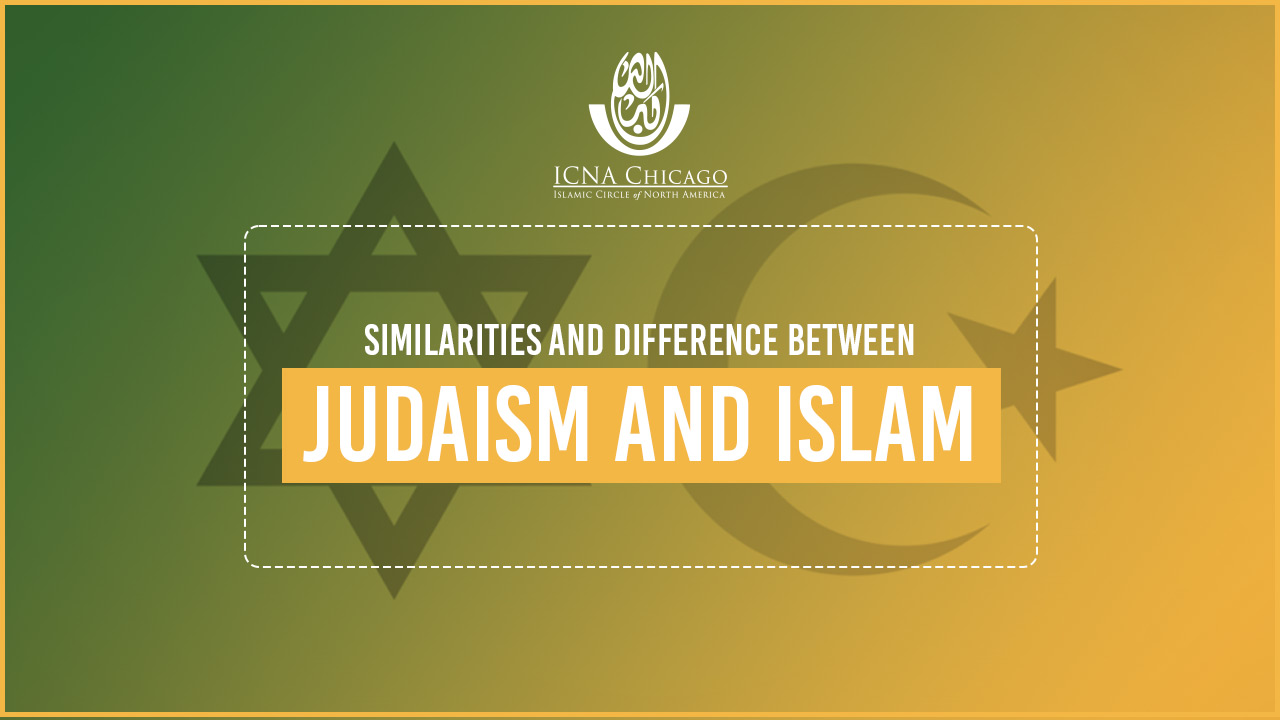
Similarities and Difference Between Judaism and Islam
Judaism and Islam are monotheistic religions that share many similarities. Both teach that there is only one God and that humans are the highest creatures on earth, capable of both good and evil.
Here, we will explore key similarities between Islam and Judaism, showing that they are not as different as some may think.

9 Surprising Similarities Between Islam and Judaism
By understanding these shared values, we can better appreciate the strong connections between these two faiths and reduce misunderstandings.
Core Beliefs
Monotheism: Both Islam and Judaism believe in one all-powerful God. In Islam, this deity is called Allah, while in Judaism, God is referred to as Yahweh or Hashem. Both faiths highlight that God is one of a kind, cannot be divided, and is the only creator and supporter of the world.
Prophets: Islam and Judaism both believe in many of the same prophets. Figures such as Abraham (Ibrahim), Moses (Musa), and Noah (Nuh) are respected in both religions. Muslims believe in all of the prophets of Judaism, and Moses is the most frequently mentioned Prophet in the Quran. Both faiths consider these prophets as messengers who conveyed God’s guidance to humanity.
Holy Scriptures: Judaism’s sacred text is the Torah, and Islam’s holy book is the Quran. Muslims believe the Torah was revealed to Moses, but the original text was not fully preserved. Muslims consider the Quran the final and complete revelation from God, delivered by the Prophet Muhammad.
Ritual Practices
Daily Prayer: Both Jews and Muslims have specific times for daily prayer. Jews pray three times a day facing Jerusalem, whereas Muslims pray five times a day facing Mecca.
Circumcision: Both Judaism and Islam practice circumcision. In Judaism, newborn males are circumcised on the eighth day after birth, as commanded in the Torah. Although circumcision is not explicitly commanded in the Quran, it is a well-established practice in Islam, following the tradition of the Prophet Muhammad.
Dietary Laws: Both religions have strict dietary laws. Jews follow kosher laws, while Muslims adhere to halal guidelines. These laws specify which foods are allowed and how they must be prepared. Both faiths prohibit the eating of pork and mandate that animals be slaughtered in a specific manner while invoking the name of God in prayer.
Ethical and Social Values
Charity: Charitable giving is a fundamental principle in both Islam and Judaism. In Judaism, this is known as Tzedakah; in Islam, it is called Zakat.
Moral Conduct: Both religions offer clear guidelines for good and ethical behavior. They emphasize honesty, fairness, kindness, and respect for others. Following these principles is essential for living a good and satisfying life.
Modesty: Both Islam and Judaism emphasize modesty in dress and behavior, especially for women. Jewish women frequently wear a scarf or wig to cover their hair, whereas Muslim women wear the hijab.
How do Judaism and Islam Differ?
Although Judaism and Islam share common Abrahamic roots, they differ significantly in beliefs, practices, and traditions. Here’s a detailed comparison of these two religions.
Origins and Founding Prophets
- Judaism: Judaism, the oldest Abrahamic religion, was founded by Moses, who led the Israelites out of Egypt and received the Torah from God at Mount Sinai.
- Islam: Islam was established by Prophet Muhammad in 622. Muslims believe that Muhammad is the last Prophet and the Quran is the final revelation from God.
Abrahamic Lineage
- Judaism: Jews are descendants of Abraham’s son, Isaac.
- Islam: Muslims are descendants of Abraham’s son, Ismael.
Sacred Texts
- Judaism: The main holy text is the Tanakh, which includes the Torah.
- Islam: The Quran is the main religious text, alongside the Hadith, which contains the teachings and traditions of Prophet Muhammad.
Concept of God
- Judaism: Belief in one God, often referred to as Hashem or Adonai, who is eternal, transcendent, and the creator of the universe.
- Islam: Belief in one God (Allah), who is eternal, transcendent, and the creator of everything. Allah is unique and incomparable.
Belief in Prophets
- Judaism: This belief system recognizes many prophets. Among them, Moses is considered the greatest.
- Islam: Believes that Muhammad is the final Prophet and recognizes many, including those in Judaism.
Practices and Worship
- Judaism: Followers of Judaism engage in daily prayers, observe the Sabbath from Friday evening to Saturday evening, and follow the 613 commandments (mitzvot) in the Torah. They worship in synagogues.
- Islam: Islam follows the Five Pillars: Shahada (faith), Salah (prayer five times daily), Zakat (charity), Sawm (fasting during Ramadan), and Hajj (pilgrimage to Mecca). People worship in mosques.
View on Jesus
- Judaism: Does not recognize Jesus as the Messiah or as a divine figure.
- Islam: Regards Jesus (Isa) as a prophet but not divine nor the son of God.
Life After Death
- Judaism: Different people have different beliefs about what happens after death. Some believe in an afterlife, returning to life, or being born again. Others focus on doing what God has commanded them to do.
- Islam: Believes in a detailed afterlife where individuals are judged by God and rewarded or punished based on their deeds.
Use of Images and Art
- Judaism: Idolatry is traditionally forbidden. In modern times, artistic representations are allowed, but not for worship.
- Islam: Images of God and prophets are not allowed to prevent idolatry. Islamic art often features calligraphy and geometric patterns.
Religious Law
- Judaism: Guided by Halakhah, which includes the commandments in the Torah and interpretations by rabbis.
- Islam: Sharia law is based on the Quran and Hadith and guides all aspects of life, such as prayer, business, and personal conduct.
Major Holy Days
- Judaism: Includes Rosh Hashanah, Yom Kippur, Passover, and Hanukkah, among others.
- Islam: Includes Ramadan, Eid al-Fitr, and Eid al-Adha.
Clergy
- Judaism: Led by Rabbis, Cantors, and other religious functionaries.
- Islam: Led by Imams, Sheikhs, and Mullahs.
Marriage and Divorce
- Judaism: In modern times, Jewish law emphasizes monogamy and regulates marriage and divorce with specific rituals.
- Islam: Men can marry up to four wives under specific conditions. It is highly recommended to get married, and while divorce is allowed, it is regulated by Islamic law.
Position of Women
- Judaism: Different types of Judaism hold different views on the roles of men and women. Some believe in distinct roles, while others advocate for greater gender equality.
- Islam: Different cultures have varying views on women’s roles. Some have strict dress codes for women, while others promote gender equality within Islamic teachings.





No Comments